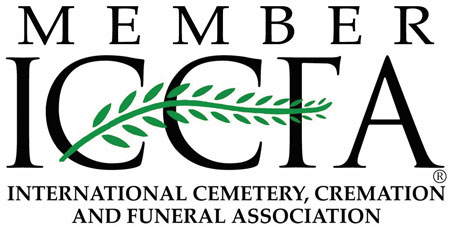Q: Should the body be present at the service?
Oops! We could not locate your form.
Transcript
Uh, an old funeral director told me once, “Your know, Richard, having a, having a funeral without the body there is like having a, it’s having a wedding, but the bride’s not there. You’ve got a nice picture of her upfront there with the groom. You know, it just, it just doesn’t quite feel the same.”
My personal choice and preference is that the body is present. For the simple reason that it’s the symbol of what’s happened.
In my experience, I feel that if, if the loved one is present at the service, it can be beneficial to the family.
People often tell me when they, when they view a loved one, “It does not look like her.” That’s right. That isn’t the point. The point of seeing the loved one’s body is so the death becomes real for me.
Not that, not that people who don’t have the body present are in denial. That’s not it. If, if grandpa died after a long illness or just of old age, and everybody had a chance to be there, to gather around his hospital bed or his, his bed at home in his own home, uh, and they said goodbye and he was able to bless them all, the body doesn’t necessarily have to be present. So the point isn’t, “Should the body be present or not”, is “Have I had the time to spend with the body? Have I had a chance to release that person fit from my physical presence?” To me, I think, that’s the more important question.
For people who have walked through it – and myself as a funeral director – when a body is present there is a – in my experience – things are a little bit more solemn, um, there is a deeper sense of the seriousness and the significance of, uh, of what the event is about. And, uh, there is a real sense of the poignancy of what death is.
It just kind of makes the gathering that much more powerful for that person to be present, I believe.
A service without the body present, uh, the fundamental difference is that that poignancy is not a part of the experience. The memories are still the same, uh, the event is still going to involve the stories and the, the connecting with the, the meaning of that person’s life and their significance.
For our own family, yes, dad was present at the funeral. He was present in my whole life. His presence is sometimes been larger than life. So it only seems right for him to be at the funeral because it was about him and for him. Does that mean that a funeral where there is a memorial, or a celebration of life, is not about the person or for them? Absolutely not. They both are. For my own preference it was a lot about seeing him and knowing he was there. For me, having his body there, it was comforting.
It’s hard to feel the depth and the fullness of what death means, in the presence of a body. And I respect that some people don’t want to have that. And I, uh, I very much welcome those who do. Whatever it takes for your family and for your experience of a meaningful life to be celebrated – with or without the body present – it’s what we are about.





